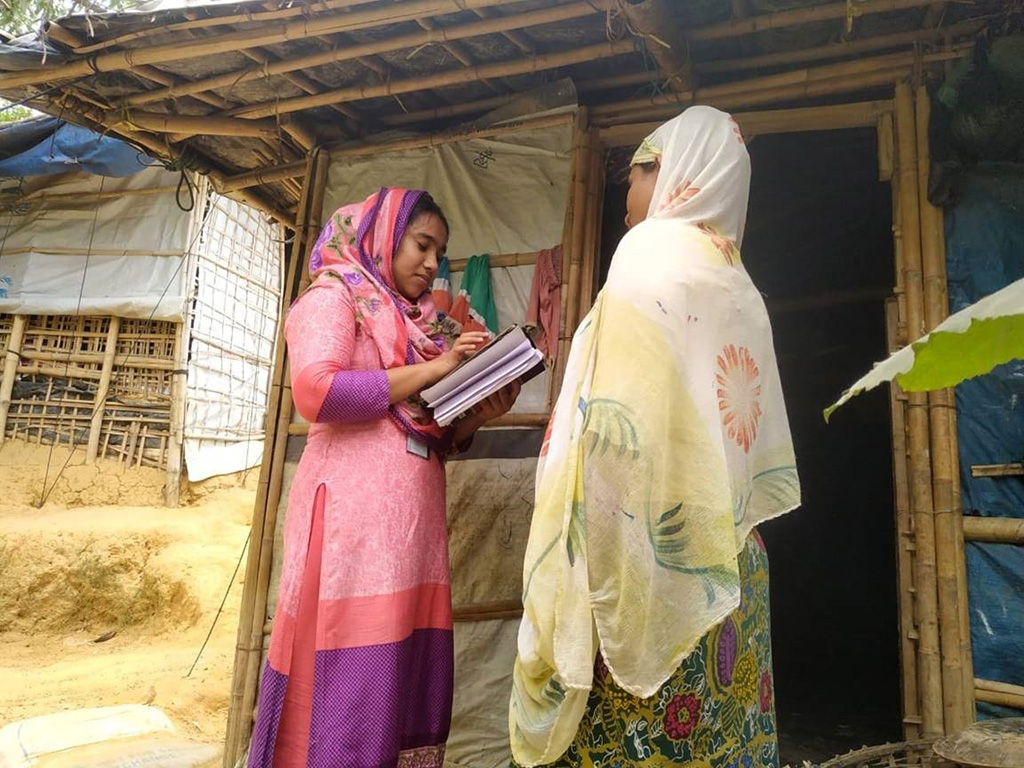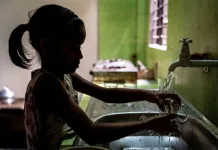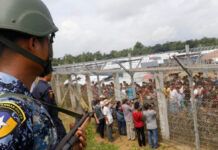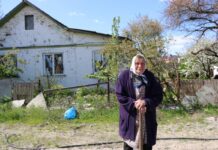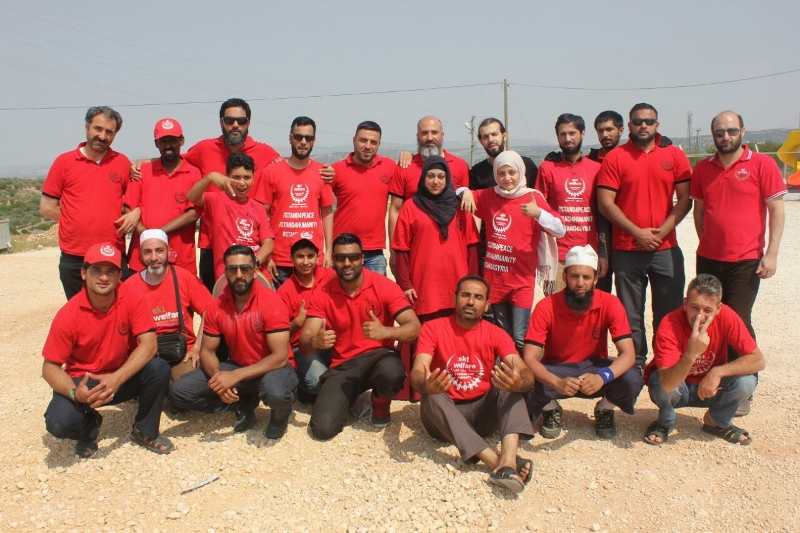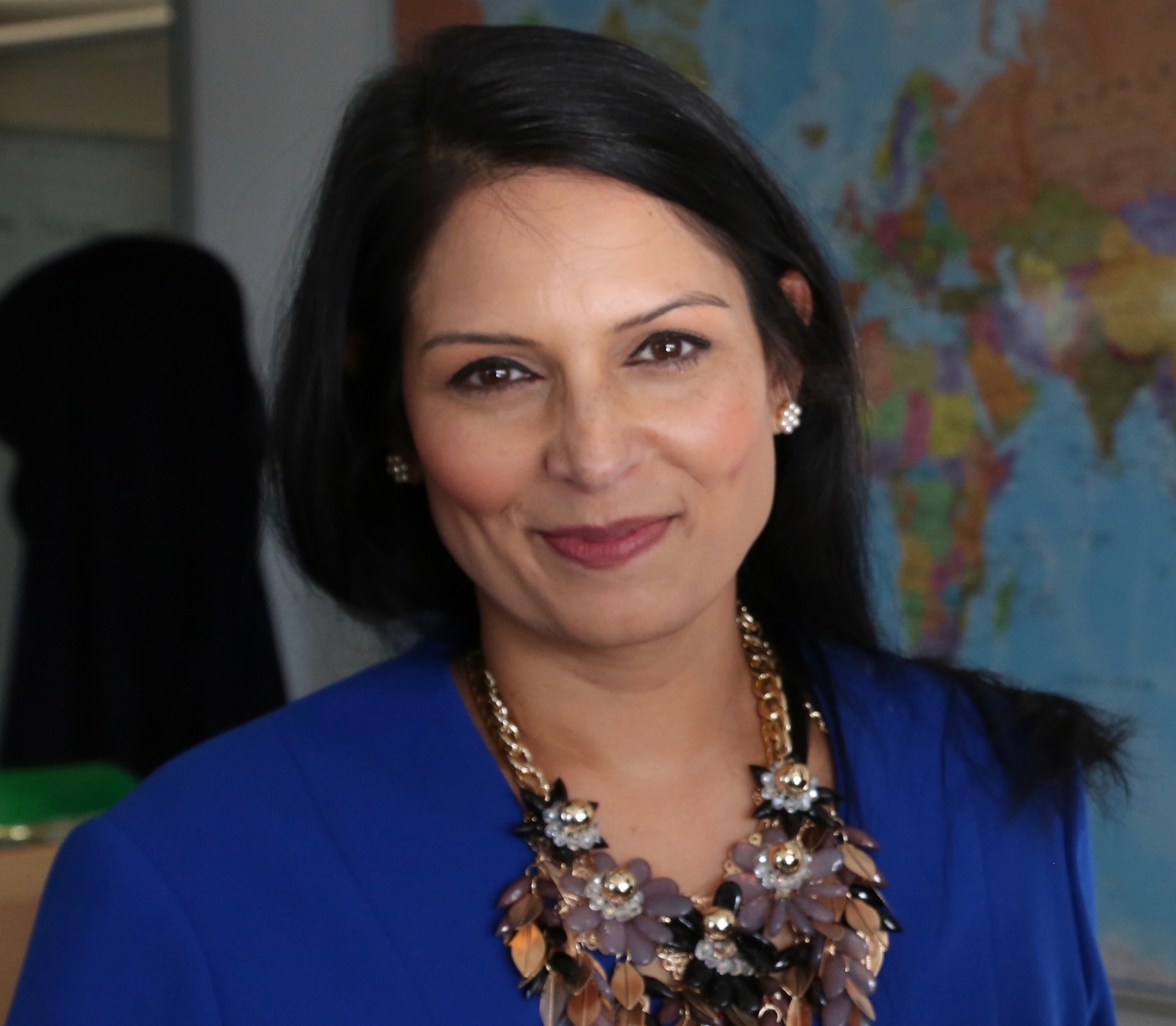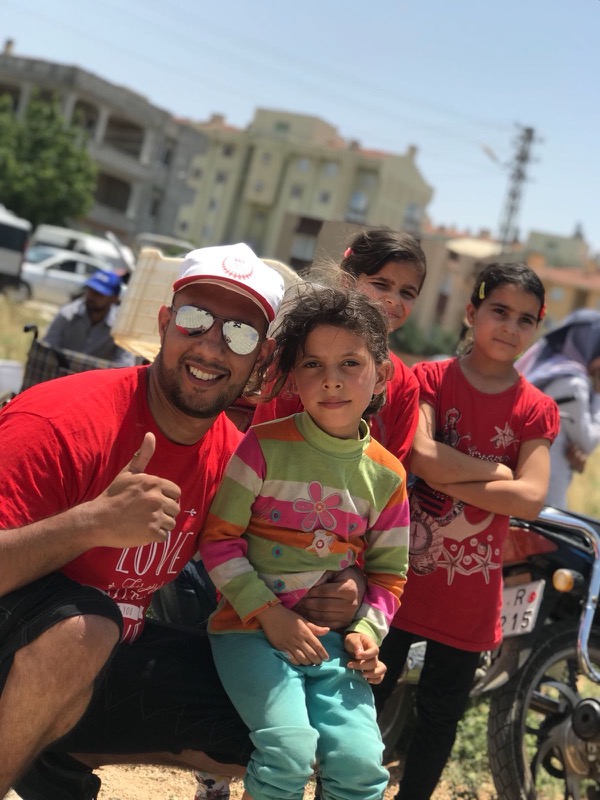Cox’s Bazar – In the giant Kutupalong refugee camp, Nesaro received a second visit from an IOM enumerator at her small, makeshift shelter, where she lives with her three children. She was taken aback the first time the team asked about the camp and her concerns – Nesaro said she had never thought about complaining about such things.
By the time the team returned, she had spoken to neighbours and family and was prepared to voice concerns about her household and neighbourhood.
ADVERT: Want a true taste of the Punjab? Visit ‘Fanoosh’ on Street Lane, Leeds
“One of the most important issues right now is security,” she told the enumerator. The community recently experienced threats of kidnapping and Nesaro said that more security was needed to protect young people.
Nesaro explained that many shelters were damaged during the rainy season – now in its final weeks – and that several pathways had been blocked.
The effort to learn the views of women like Nesaro is part of an IOM Needs and Population Monitoring (NPM) pilot project designed to expand information-gathering and ensure that women’s views are incorporated in feedback from the sprawling camps, which are home to nearly a million Rohingya refugees from Myanmar.
The NPM conducts regular surveys to determine humanitarian needs, priorities and demographic trends. It employs 120 enumerators split into 12 teams.
Each enumerator is equipped with a personal tablet showing the camp’s blocks and structures through an app that uses a Global Information System (GIS). This provides live satellite mapping and positioning.
The teams cover four blocks per day, asking refugee representatives a list of pre-arranged questions. Each set of interviews includes a male and a female respondent interviewed separately.
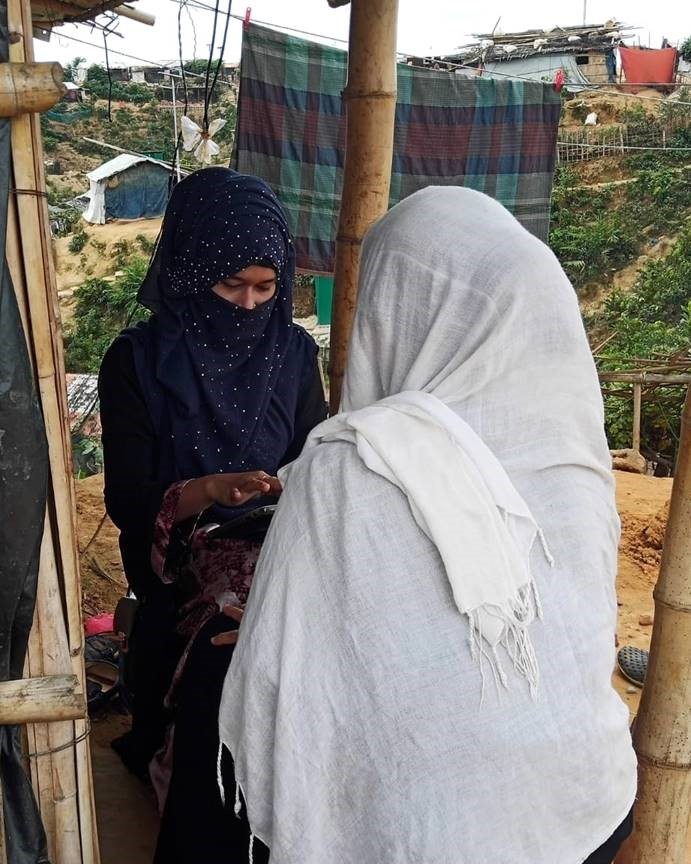
A total of 4,000 interviews are completed for incorporation into a quarterly report that contributes to the statistical basis of the humanitarian response in the Cox’s Bazar camps.
With the first pilot now complete, the response has been far better than initially expected. “It is common to ask women about their immediate home and family, but we wanted them to think more about their broader communities. It was a bit of a shift, especially with a survey of this magnitude,” said NPM Field Coordinator Adam James.
The effort began in September 2018 when women started to participate in focus groups to discuss community concerns. This was expanded in May 2019 when enumerators began visiting women respondents in the camps to obtain their feedback.
Out of interviews in almost 2,000 locations, the NPM team set a modest goal of achieving a 25 per cent response rate. They were astonished when it resulted in 100 per cent participation.
The strong deliverables also challenge assumptions about rank in the camps. “The view was that you needed to have a formal position of authority in order to have a view on community issues. This clearly goes against that,” James added.
Noor, who lives in a nearby shelter, told enumerators that for her, access to education is a major concern. “Children need better language skills and a classroom that’s close by so they can go there and back in a way that’s safe,” she said. She also raised other issues relating to access to food and shelter materials, noting that other members of her community share the same concerns.
For enumerator Asma Ul Hosna – who has been interviewing refugees since the crisis began in mid-2017 – the responses have changed over time. “In the initial days after the refugees arrived, the main issues were the simple chaos of the situation. People couldn’t reach their homes because there were no paths. There was little or no reliable access to food or other aid. Now the concerns are more about security and services,” she said.
Having women as part of the process has improved the quality and quantity of data that previously came exclusively from the male leadership. “We want the pilot to serve as an example so that women have more confidence expressing their views – not just about their family, but about the community as a whole,” she added.
ADVERT: Want a true taste of the Punjab? Visit ‘Fanoosh’ on Street Lane, Leeds


